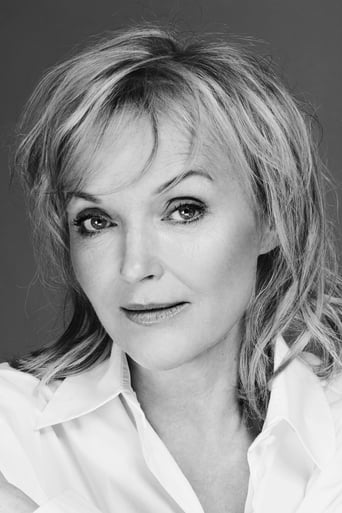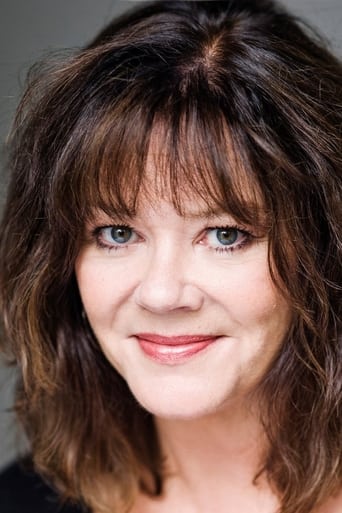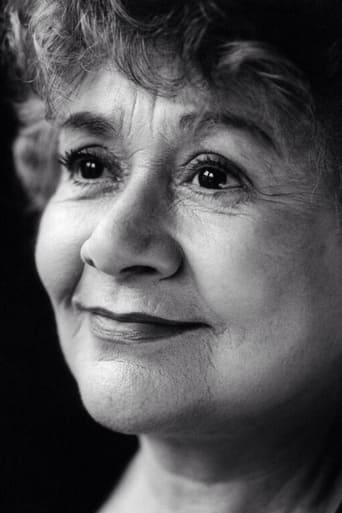AnhartLinkin
This story has more twists and turns than a second-rate soap opera.
Erica Derrick
By the time the dramatic fireworks start popping off, each one feels earned.
Ella-May O'Brien
Each character in this movie — down to the smallest one — is an individual rather than a type, prone to spontaneous changes of mood and sometimes amusing outbursts of pettiness or ill humor.
Dana
An old-fashioned movie made with new-fashioned finesse.
kijii
This is the second movie version of Elizabeth von Arnim's novel. This low-action movie is about seven very different kinds of people who are thrown together for a time. One thing they all have in common is that, without realizing it, their lives in post-war London had become routine, humdrum, and fossilized.Lottie Wilkins (Josie Lawrence) is dominated by her conservative and controlling husband, Mellersh (Alfred Molina). He is trying to build his law practice with influential people and needs his wife to reflect his conservatism in social situations. Also, he is teaching her to be frugal with her money by writing down all of her expenditures. Lottie, on the other hand, is more non-conventional than that. She dreams of something that will jar her lose from her London life—if only for a little while. She is attracted when she sees an advertisement in a newspaper for a one-month rental of a secluded villa on the Italian cost.Realizing that she doesn't have the money to do it by herself, she approaches a fellow member from her ladies social club, Rose Arbuthnot (Miranda Richardson). Rose is married to a rather common and unimaginative man, Frederick (Jim Broadbent), who writes spicy (but profitable) romance novels, mainly for women. Rose and Fredrick are in a non-ideal marriage; his work doesn't mix well with her strongly-held conventional religious feelings. The two women go to see the man who owns the castle, George Briggs (Michael Kitchen). George is a shy lonely man living in a large London home. When they meet George, they learn that he plays a plaintive musical instrument that he feels sums him up: he plays the oboe. The two women give George a down payment for their month in his Italian castle, San Salvatore.When they realize that another woman, a Mrs. Fisher, wants the castle for the same month, they visit her at her home. Mrs. Fisher (Joan Plowright) is an older woman who lives alone but has connections with VIPs all over London. She is an intellectually haughty woman who constantly drops the names of all of the great literary figures that she had known from her childhood on. These had been dead in the early 1920s (the setting for this story) but were still well known in British literary circles: George Meredith and Alfred Lord Tennyson, to name a couple. When Lottie innocently asks Mrs. Fisher if she knew Keats, Mrs. Fisher snaps back. "NO, I most certainly did NOT know Keats--nor Shakespeare--nor Chaucer, either." As if so say, "How old do you think I am, anyway?" The opening relationship between Mrs. Fisher and Lottie and Rose is further soured when Mrs. Fisher offers her references and suggests that they do the same. They refuse based on the principle of the situation, and Mrs. Fisher is therefore coaxed into waving off the idea of exchanging references.When the three women arrive at San Salvatore, they find their fourth villa companion there—alone and aloof: the young, attractive, flapper Polly Walker (Caroline Dester). She wants to be left alone. She needs time to re-group after her late husband's death in the war and/or to get away from grabbing men who seem to be constantly drawn towards her.This unlikely foursome is surrounded by a staff of simple Italian servants. Only Polly and Mrs.Fisher speak Italian. But, as Fisher remarks to herself, "Polly's Italian is more suited to the staff since hers is the Italian of the kitchen while Mrs. Fisher's is the Italian of Dante. What's interesting to watch in this movie is how the four women's personalities and outlooks evolve during their month at San Salvatore. This is due to their brightened outlook about themselves, the salutary effect of taking a vacation from their lives in London and escaping from their individual types of loneliness. When George Briggs and the two husbands come to visit San Salvatore, they get a chance to "pair off" and rekindle their marriages or establish new relationships. As Lottie says, "This place is a "Tub of love."
Bladerunner101
I need to add my praise to these other positive reviews. This is one of the rare films that could not be improved in any way.Everything works in perfect harmony; the script, the performances (impossible to pick out highlights, everyone is great), the camera-work, editing, music and the breathtaking setting.If you love violence, adrenaline, jeopardy, terror or guns you may wish to pass on this film, and so avoid writing inappropriate, negative reviews.If you are in the mood for the kind of uplifting emotional therapy that can only be found in a warm, nuanced, and profoundly human film this is unmissable.
adelaidetaylor
Unforgettable movie--fabulously elegant, charming, funny, poignant, and human in a very positive way. I was reminded about Enchanted April when I watched Foyles' War, recognized Michael Kitchen, and searched his filmography to see where I had "met" him before.It's been years since I have seen it, but it's on my list to see again. The characters compliment each other and the actors were perfectly chosen as an ensemble that seamlessly produced a flowing, moving, and joyfully entertaining mini-masterpiece of a film. Rarely do movies create and sustain a mood that touches the souls of the audience the way Enchanted April does. I highly recommend this film to anyone who enjoys filmmaking at its most authentic and genuine.
turnsta
After being involved in the theatrical version i find the film version disjointed and boring. Lines said by one character in the play are said by a different character in the film and some characters have entirely different names. There also seems to me an excessive amount of editing between locations. (There is even more jumping around between London scenes than the play.) Also the scene where Mellersh is eating near the beginning of the film i find repulsive and unnecessary. Once the action moves to Italy the film improves, but not enough to save it ultimately. Jim Broadbent, although an actor i enjoy watching, was miscast in this outing.





